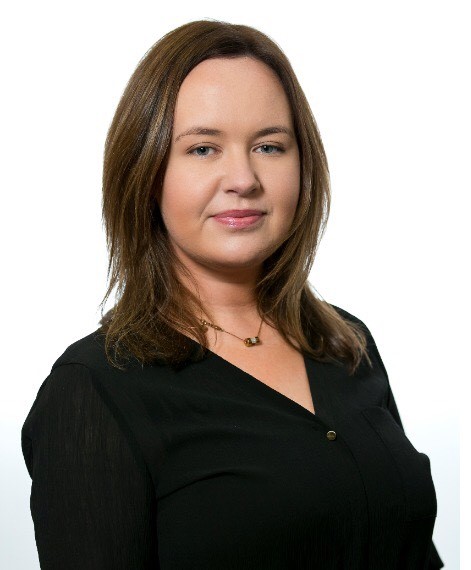The Fenergo interview: a compendium of tips for MLROs
Chris Hamblin, Editor, London, 6 July 2020

What should a money-laundering reporting officer do if Hunter Biden is an applicant for business? What are the 'red flags' associated with the beneficial ownership of corporations by a HNW customer? How might the Senior Managers & Certification Regime make MLROs' annual reports more honest? In this article Rachel Woolley (pictured) of Fenergo answers these and other questions.
Rachel Woolley is the global director of financial crime at Fenergo, an AML software vendor. She has more than ten years’ experience in the financial sector, having worked primarily in funds and retail banking. Compliance Matters asked her some questions about recent trends and her answers are to be found here.
Q: What does the MLRO do when he goes onto Google or World-Check and notices that the PEP/applicant for business has some very expensive properties or luxury goods? Does he ban him from business until he’s seen all the receipts and the old bank statements that show where the money came from? Or does he place him on the high-risk list but take the business anyway without seeing all the receipts? Does he give him a free pass because he doesn’t actually own the yachts and aeroplanes because it’s owned by an opaque couple of Cayman-island SPVs? Please take us through the right steps.
A: There are a couple of angles to this. In the UK, you have the unexplained wealth order (UWO). If there's no explanation of someone's wealth, there is a tool for the state to deal with it. In terms of onboarding, there's a lot of focus around politically-exposed persons or PEPs, close family members and close associates. You may be subject to bribery as well as corruption. The MLRO trying to ascertain the level of risk seems to be a shift to an industry consideration because if you don't accept him, the likelihhood is that someone else will. There is a massive focus on your network risk [which is present] the length and breadth of your organisation. That's the thing that Fenergo helps firms with and manual processes struggle to catch it. So you have to get the source of funds. Once you've done that, you must find the source of wealth. That's slightly trickier to find and verify. You might be onboarding lots of customers at the same time, which might cause problems. It's also difficult if the HNW person you're onboarding has new money, perhaps if he has 'won big' at a casino. He is innocent until proven guilty, although most companies have a level of professional scepticism.
Q: What if you're onboarding, say, Hunter Biden? He might raise a few red flags, having obtained that well-paid job on the board of a Ukrainian gas company with no command of Ukrainian and no experience in the energy sector at a time when his father was US vice president.
A: With a case like that, you have to sift through all the noise. There is a lot of information in the public domain that might not be fair. There are dark arts on the opposition side. I'd be looking at public registries. One red flag is a large corporation where the board has been changing quite frequently. You also have to look at how he attained a seat on the board.
Q: What have recent studies by Fenergo found?
A: A report that Fenergo released this year (which draws its data from up to the end of last year) found that the world's regulators have levied more than US$36 billion in AML/KYC and sanctions-related fines since the financial crisis began in 2008-9. This staggering number shows that the financial institutions in question had inadequate policy, processes, procedures, systems, governance and, in many cases, oversight. Interestingly, a similar report from 2018 found that the vast majority of these regulatory costs were associated with an AML/KYC-specific labour force.
Q: A financial firm must understand the ownership and control-structure of every firm that it 'onboards' but corporations do not go to private banks for business. Instead, the applicant for business is often an HNW who has stakes in lots of companies and/or draws his wealth and funds from them, so the compliance officer or MLRO has to check out the beneficial ownership of those corporations, is that not so?
A: Yes, or it relies on a financial advisor. And it has to check to see if a PEP owns majority stakes in those companies, or if the applicant for business is a PEP himself. It has to see what he's controlling – it's not just looking into shareholdings any more, it's also about ascertaining control. Most jurisdictions have rules saying who's acting on the account. It'll want to know the corporations that he owns when it's trying to identify the source of his wealth, then it wants to know it for the purposes of transaction monitoring.












